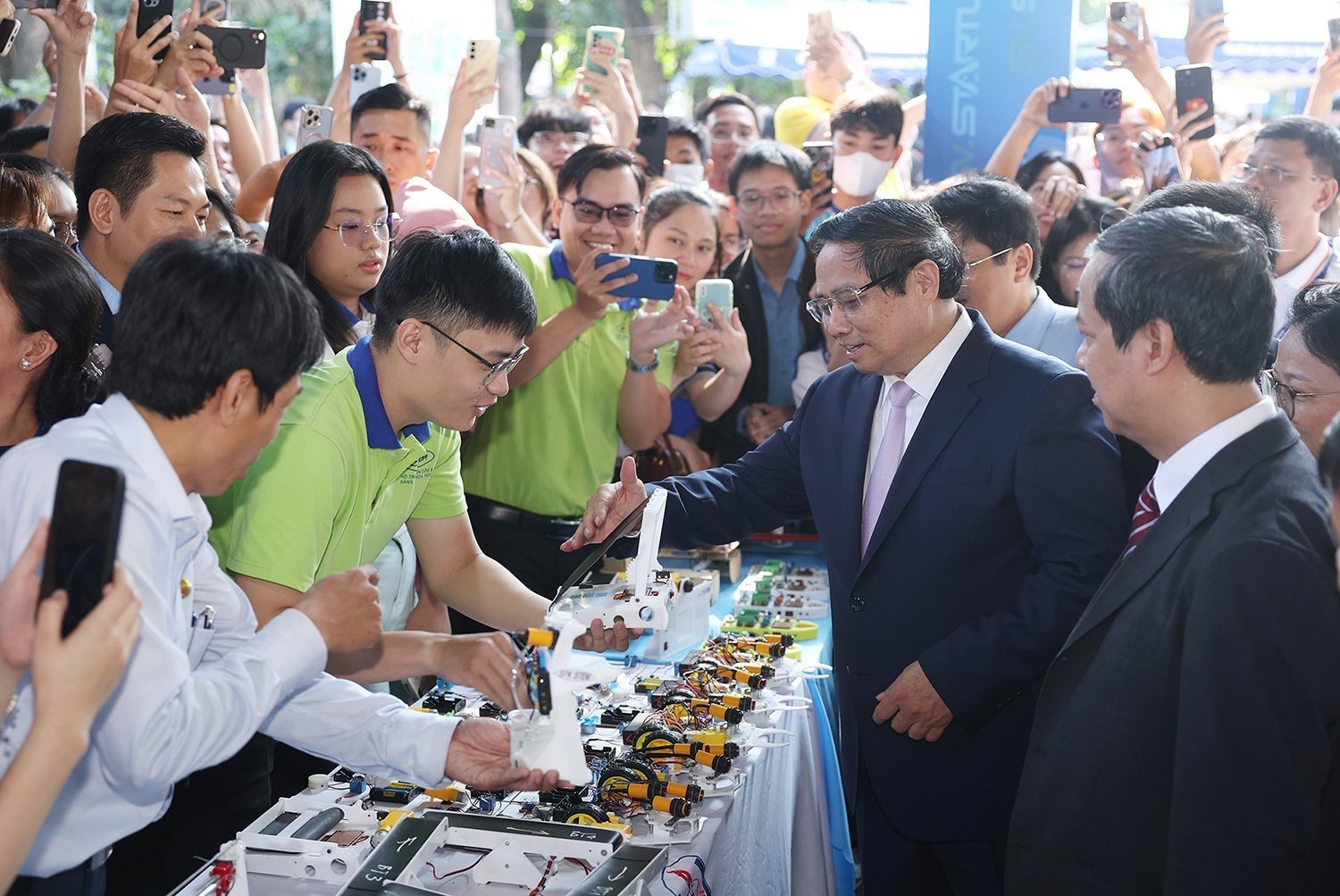
The role of businesses, universities, research institutes and state agencies in scientific research
Cooperation (enterprises - universities, research institutes - state agencies) is mentioned by many studies as the pillar of the operation of the innovation ecosystem, where scientific ideas are formed, developed, transferred and applied in practice. In which, the state plays the role of creating institutions, coordinating strategies and removing difficulties and obstacles. Universities and research institutes are places to impart knowledge, train research human resources, high-quality human resources and transfer technology. Enterprises are the address to commercialize research results, ensuring the practical application of research. The interactive relationship between these subjects is the "multi-cylinder engine" that operates the innovation ecosystem, thereby creating momentum and a bridge to promote private economic development. Strengthening this connection helps universities and research institutes effectively apply knowledge into practice, improving training quality; Enterprises have the opportunity to access high-quality human resources, apply new research achievements to improve productivity and quality of production and business activities, increase competitiveness, thereby creating a coordination process, symbiosis of resources for training, research and development, input linked to output, increase brand value and revenue for all parties to promote the country to achieve the goal of becoming a developed, high-income country by 2045.
The cooperative relationship between universities, research institutes and enterprises is a popular trend and is considered an effective solution to improve the quality of training, scientific research and technology transfer; at the same time, it solves the problems of enterprises, increases the application of science and technology in production and business to increase labor productivity and sustainable development. Some common forms of cooperation between enterprises and universities and research institutes include: i- Cooperation in research and human resource training to solve problems according to the needs of enterprises; ii- Commercialization of research results of universities and research institutes; iii- Implementation of transfer, exchange and internship programs for lecturers, scientific and technical researchers and students; iv- Coordination in developing and organizing the implementation of training and fostering programs; v- Coordination in implementing support for start-up activities; vi- Coordination in implementing activities to improve the management capacity of universities and research institutes.
Entering a new era of development, where knowledge, technology and innovation, especially artificial intelligence (AI), become the central driving force of growth, Resolution No. 57-NQ/TW, dated December 22, 2024, of the Politburo, on breakthroughs in science, technology, innovation and national digital transformation was issued, helping to promptly liberate scientific thinking, promote breakthroughs in science, technology, innovation and digital transformation development, creating a foundation for strong national development in the new era. Resolution No. 57-NQ/TW clearly states: “People and businesses are the center, the main subject, resource and driving force; scientists are the key factor; the State plays a leading, promoting and creating the most favorable conditions for the development of science, technology, innovation and national digital transformation”.
Some issues raised in scientific research cooperation
Although cooperation between enterprises - universities, research institutes - state agencies has been shown by many studies to be a pillar in operating the innovation ecosystem, creating momentum for private economic development, practice shows that realizing this connection still faces a number of challenges.
First of all, the human resources for high-quality research and application of science and technology are still lacking and scattered. Many universities and research institutes still lack a team of specialized experts with the capacity to solve practical problems of enterprises. Meanwhile, the business sector, especially small and medium enterprises, mainly private enterprises, lack personnel capable of absorbing, receiving, evaluating and implementing the results of scientific research. In addition, due to the small scale, the vision of small business leaders is generally limited, so there is a lack of orientation and leadership for business development based on the foundation of science - technology and innovation; there is still hesitation in "ordering" research; little interest in receiving technology transfer and scientific research results and lack of attention and proper investment in research and technological improvement in production and business.
Second, the mechanism for connecting universities, research institutes and enterprises is not really effective, especially in exploiting the strengths and potentials of each party. Universities and research institutes have a foundation of scientific and technological knowledge, but still need an address to apply research results. Meanwhile, enterprises have a great need for practical application, but lack information, trust and mechanisms to deeply participate in the process of research, application and transfer of scientific and technological advances. The lack of intermediary institutions, such as technology transfer centers and incubators, also reduces the sustainability of cooperation. In addition, the role of creating and supporting initial research funding of state agencies to connect and promote the need for cooperation between universities, research institutes and enterprises in scientific research activities is not substantial, lacking strategy and motivation to promote cooperation between these two entities.
Third, the issue of copyright and protection of intellectual property rights, co-ownership, benefit sharing or transfer of intellectual property for research products in the relationship between universities, research institutes and enterprises is still unclear. The mechanism and policy to encourage co-funding between enterprises and universities and research institutes in performing scientific and technological tasks is not attractive.
Opportunities and motivations for scientific research and technology transfer in the new era
Despite some challenges, the innovation ecosystem and private sector enterprises are facing a special "window of opportunity", thanks to the timely issuance of new Party resolutions and the determination of all levels and sectors.
Resolution No. 57-NQ/TW and Resolution No. 68-NQ/TW are two important resolutions among the four Resolutions of the Politburo - the "four pillars" (1) . In particular, Resolution No. 57-NQ/TW orients the mechanism and solutions to remove bottlenecks, and at the same time puts forward a number of new and breakthrough viewpoints to promote the development of scientific research, technology transfer and innovation. The Resolution clearly states: "there is a pilot mechanism for enterprises to test new technologies under State supervision; there is a policy of exemption from liability for enterprises, organizations and individuals in the case of testing new technologies and new business models that cause economic losses due to objective reasons"; "the State budget can be used to hire experts, use tangible and intellectual assets to link and cooperate in science and technology with organizations and enterprises"; "There is a mechanism to allow and encourage research organizations and scientists to establish and participate in operating businesses based on research results"...
Resolution No. 68-NQ/TW dated May 4, 2025 of the Politburo continues to identify: “The private economy is the most important driving force of the national economy; is a pioneering force in the development of science, technology, innovation and digital transformation, contributing to the successful implementation of the goals of Resolution No. 57-NQ/TW dated December 22, 2024 of the Politburo and other policies and guidelines of the Party”. The fourth task and solution of this Resolution is to promote science, technology, innovation, digital transformation, green transformation, effective and sustainable business in the private economy, with many breakthrough mechanisms, including suggesting mechanisms for cooperation, research, and application of science and technology by enterprises.
To promptly institutionalize the Party's policy on promoting innovation and private economy in Resolution No. 57-NQ/TW, dated December 22, 2024, of the Politburo, on breakthroughs in science and technology development, innovation and national digital transformation; Resolution No. 59-NQ/TW, dated January 24, 2025, of the Politburo, on international integration in the new situation; Resolution No. 66-NQ/TW, dated April 30, 2025, of the Politburo, on innovation in law-making and enforcement to meet the requirements of national development in the new era and Resolution No. 68-NQ/TW, dated May 4, 2025, of the Politburo on private economic development - the "four pillars", the Government has submitted to the 15th National Assembly for approval a number of laws, which mention a number of specific policies on promoting cooperation between enterprises - universities, research institutes - state agencies in scientific research. Law on Science, Technology and Innovation No. 93/2025/QH15 has institutionalized the Party's resolutions, creating a shift in unlocking resources, connecting all fields to promote science, technology and innovation activities to become a new driving force in economic and social growth and breakthrough development. The Law defines a completely new approach, promoting innovation in the whole society, focusing on enterprises, strongly encouraging the commercialization of research results. The Law clearly demonstrates the State's role in creating (building and developing infrastructure to serve scientific research, technology development and innovation; building information infrastructure, statistics on science, technology and innovation; National Science and Technology Development Fund, National Technology Innovation Fund...) and the State's management mechanism (State management responsibilities, State management measures, prohibited acts in science, technology and innovation; expenditure contents, principles of allocation, management and use of the State budget for science, technology and innovation; exemption and exclusion of responsibility in controlled testing activities; protection of participants in controlled testing...).
Along with that, a number of related laws are about to take effect, such as the Law on Teachers 2025, the Law on Employment 2025, the Law on Corporate Income Tax 2025... stipulating policies to promote cooperation activities between enterprises - universities, research institutes - state agencies in research, application, and transfer of scientific and technological advances. This new mechanism and policy will promote the formation of a flexible and practically connected innovation ecosystem, in which the "three houses" not only play an independent role, but also cooperate, jointly create knowledge, science and technology values, create new development poles with higher productivity and labor quality, enhance competitiveness, create important impetus in promoting GDP growth to reach double digits in the long term, contributing to enhancing Vietnam's position in the international arena.
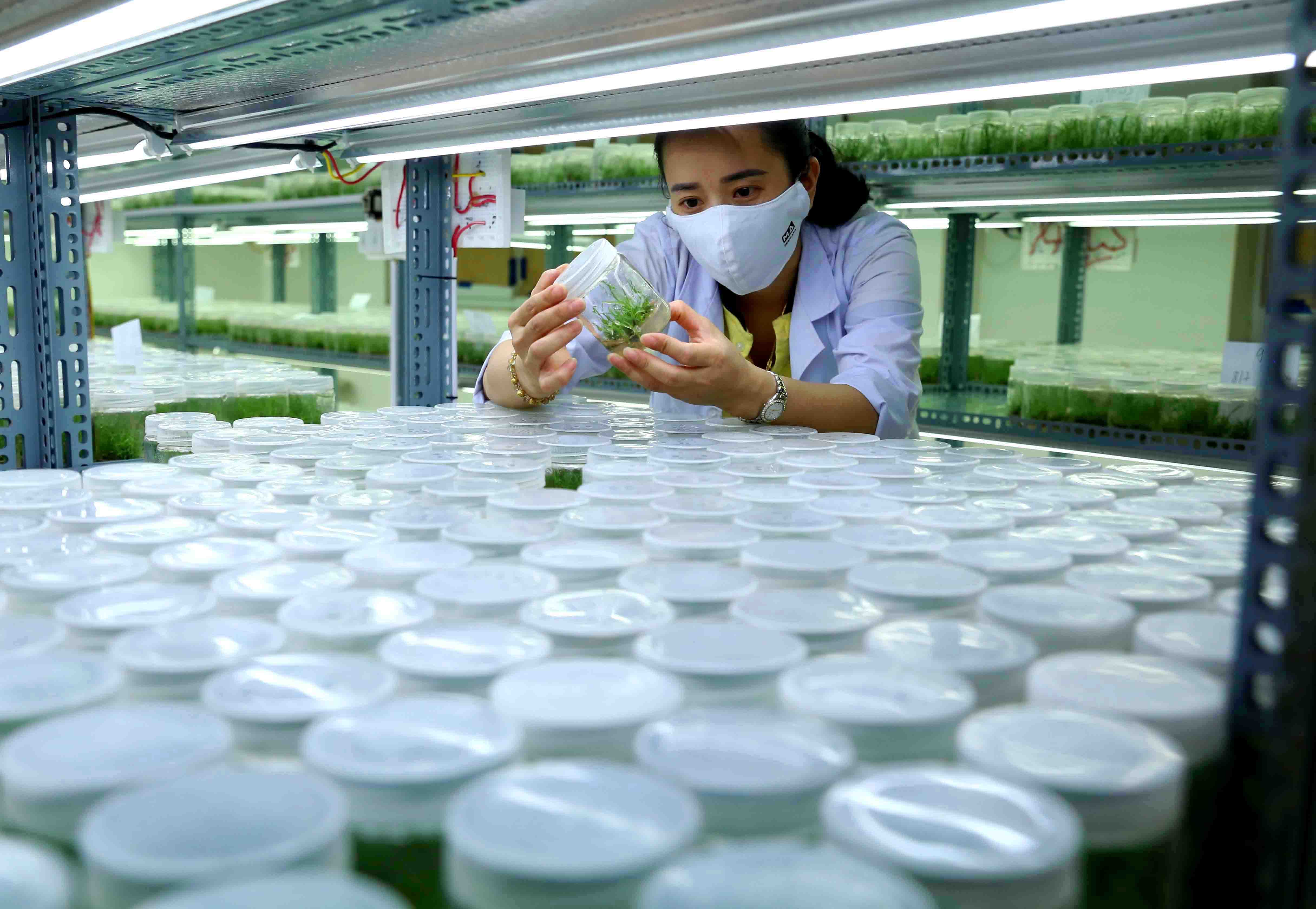
Solutions to promote cooperation between enterprises - universities, research institutes - state agencies in research, application and transfer of scientific and technological advances
Firstly , strengthen the leading, creative and connecting role of the State; promote the central role of enterprises, especially private sector enterprises, in science and technology activities, ensuring that scientific research needs to go ahead to serve socio-economic development and national governance.
The development of strategies, plans and investments in science, technology and innovation development must be linked to the national strategy for developing key sectors and fields and must be implemented one step ahead, especially the development of highly qualified science and technology human resources, approaching the level of developed countries. Develop a national strategic program on highly qualified science and technology human resources, especially science and technology human resources and good teachers for strategic technology and national strategic products. In addition, it is necessary to quickly research and form an ordering mechanism, grant scholarship opportunities as well as credit support for excellent students in the field of strategic technology and national strategic products to create a key high-quality human resource.
Build a system to evaluate research capacity by industry/field, with focus, key points, and priority given to a number of areas with strengths. Select and prioritize scientific research investment in a number of key areas, such as semiconductor materials, clean energy, high-speed railways, nuclear energy, artificial intelligence, etc.; have policies to encourage domestic enterprises, especially private sector enterprises, to participate in key national investment projects to enhance endogenous capacity in research, transfer and application of science and technology, promptly meeting the country's breakthrough development requirements in the era of national development.
Invest in forming specialized research centers; build infrastructure and specialized support services in industrial parks and high-tech zones to attract businesses to invest in building shared experimental and research facilities.
Provide detailed regulations and specific guidelines on policies on human resource development, talents in science, technology and innovation; create conditions for universities and research institutes to organize training and foster human resources to meet development requirements. Encourage enterprises and private economic groups to establish human resource training facilities, especially high-quality human resources.
Early institutionalization of the policy that private enterprises and organizations are allowed to use laboratories, testing rooms, design support rooms and shared research equipment, testing, measurement, inspection and appraisal centers of the State to develop products in the spirit of Resolution No. 68-NQ/TW to enhance the effectiveness of cooperation in research, application and transfer of scientific and technological advances between enterprises and universities and research institutes.
Second , take the effectiveness of applying scientific research products in enterprises as a measure to evaluate scientific and technological activities.
Provide detailed regulations and specific guidelines on policies to support businesses in innovation and improve their ability to absorb technology; tax deductions; mechanisms for researchers and lecturers to participate in research, application and transfer of scientific and technological advances, even if they are carried out in enterprises, to be considered as performing research and teaching tasks at universities and research institutes. Conduct evaluation of research results in conjunction with the level of application, commercialization and solving practical problems.
In the process of determining research and cooperation areas, it is necessary to have the participation and evaluation of enterprises from the initial stages to orient the priority issues that need to be researched and solved, as well as to ensure feasibility in research. At the same time, enterprises increase investment in resources for research, order research issues for universities and research institutes, and provide scholarship programs to attract learners and scientists to participate. Increase the participation of enterprises in the process of human resource training; enterprises participate in the evaluation and recognition of graduation, especially for high-quality programs.
Third , focus on building a culture of cooperation and research ethics to strengthen trust in cooperation between parties in scientific and technological activities.
Strengthen the implementation of startup and innovation programs; organize events, performances, and awards to popularize and spread startup and innovation culture to change awareness and habits, form rules and behavioral standards on scientific research and innovation, and consolidate and strengthen mutual trust between businesses and universities and research institutes.
Organize the conferment of State titles, awards and other forms of commendation to organizations and individuals with achievements in science, technology and innovation activities. At the same time, strictly handle violations of the law, research ethics, and obstruction and difficulties in science, technology and innovation activities.
Fourth , strongly innovate state management methods in science and technology activities.
Strongly shift from pre-control to post-control mechanism, based on the output results of scientific and technological activities. Promote decentralization, apply spending to final products or spending in parts according to research content associated with accountability mechanism.
Form and develop intermediary institutions for science and technology. Form a science and technology development fund at all levels, enterprises, organizations, public service units, especially at higher education institutions; promote the role of national innovation centers, high-tech and innovation parks, incubation centers, and technology transfer.
Applying digital transformation in managing topics, projects, scientific research programs, evaluation, connecting supply and demand. Building a national database system on scientific research and technology transfer. Connecting national data systems with international ones to facilitate connection, sharing, cooperation in scientific research and evaluation, verification of research results internationally.
Fifth , strengthen cooperation between Vietnamese universities, research institutes, and enterprises with international enterprises, universities, and research institutes in scientific research and technology transfer.
Detailed regulations and guidelines for implementing mechanisms and policies on international cooperation in scientific research, technology transfer and innovation. Implement research programs linking businesses, universities and international institutes. Develop scholarship programs, exchange scientists and students, and support joint research groups between Vietnam and foreign countries. In addition, it is necessary to enhance international cooperation capacity for universities, research institutes and businesses through foreign language training, research capacity, application and international project management.
In addition, it is necessary to promote cooperation mechanisms between businesses, universities and research institutes in creating an environment to attract overseas talents, especially attracting scientists from countries with developed science and technology to carry out major scientific tasks, having a positive impact on the country's socio-economic development./.
---------------------------------
(1) The four Resolutions of the Politburo include: Resolution No. 57-NQ/TW, dated December 22, 2024, on breakthroughs in science and technology development, innovation and national digital transformation; Resolution No. 59-NQ/TW, dated January 24, 2025, on international integration in the new situation; Resolution No. 66-NQ/TW, dated April 30, 2025, on innovation in law-making and enforcement to meet the requirements of national development in the new era; Resolution No. 68-NQ/TW, dated May 4, 2025, on private economic development
Source: https://tapchicongsan.org.vn/web/guest/van_hoa_xa_hoi/-/2018/1143002/tang-cuong-hop-tac-doanh-nghiep---truong-dai-hoc%2C-vien-nghien-cuu---co-quan-nha-naoc%2C-thuc-day-doi-moi-sang-tao%2C-tao-dong-luc-phat-trien-kinh-te-tu-nhan-trong-ky-nguyen-moi.aspx



![[Photo] Keep your warehouse safe in all situations](https://vphoto.vietnam.vn/thumb/1200x675/vietnam/resource/IMAGE/2025/10/1/3eb4eceafe68497989865e7faa4e4d0e)




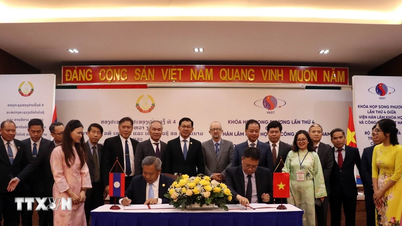

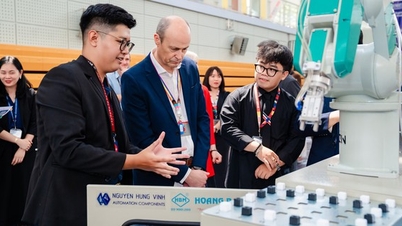

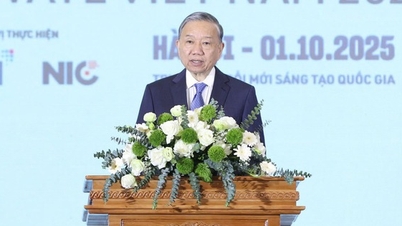
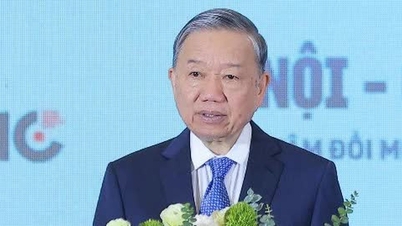

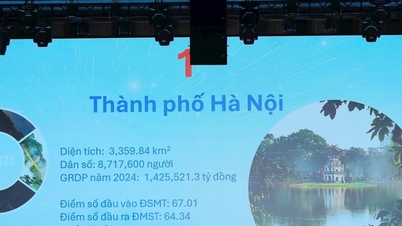

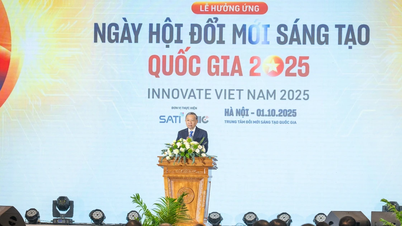
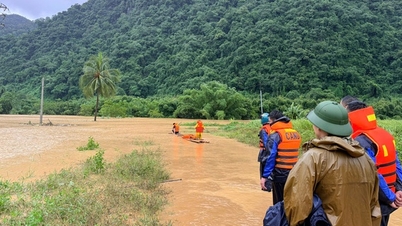

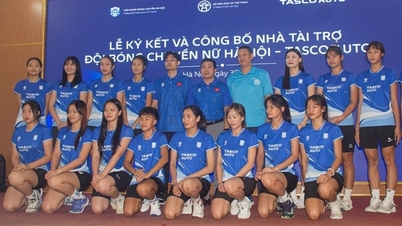














![[Photo] President of the Cuban National Assembly visits President Ho Chi Minh's Mausoleum](https://vphoto.vietnam.vn/thumb/1200x675/vietnam/resource/IMAGE/2025/10/1/39f1142310fc4dae9e3de4fcc9ac2ed0)
























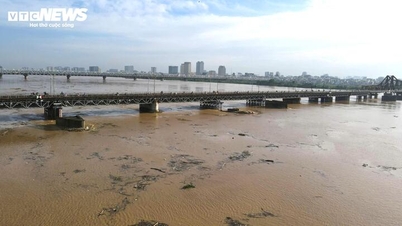




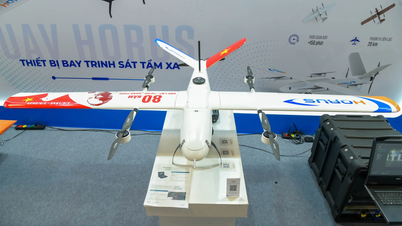















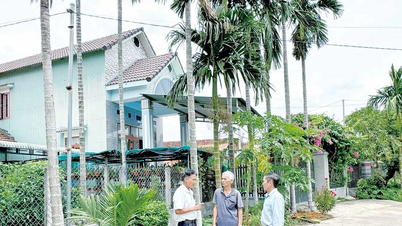


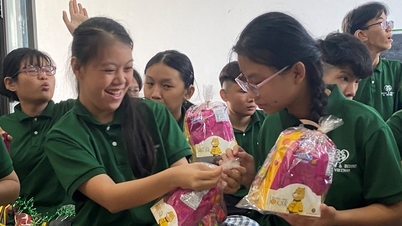















Comment (0)